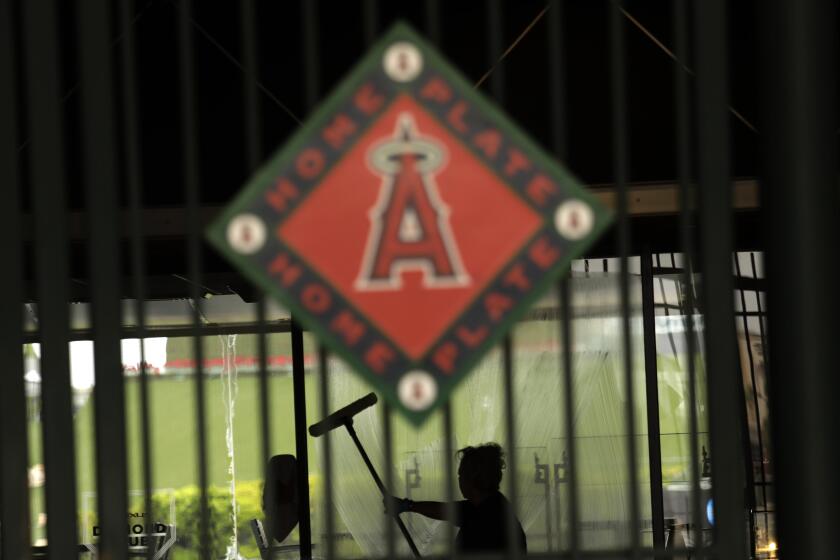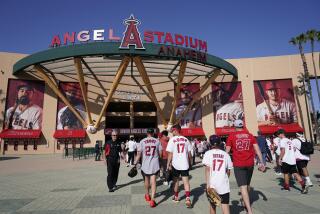Anaheim City Council votes unanimously to halt the sale of Angel Stadium
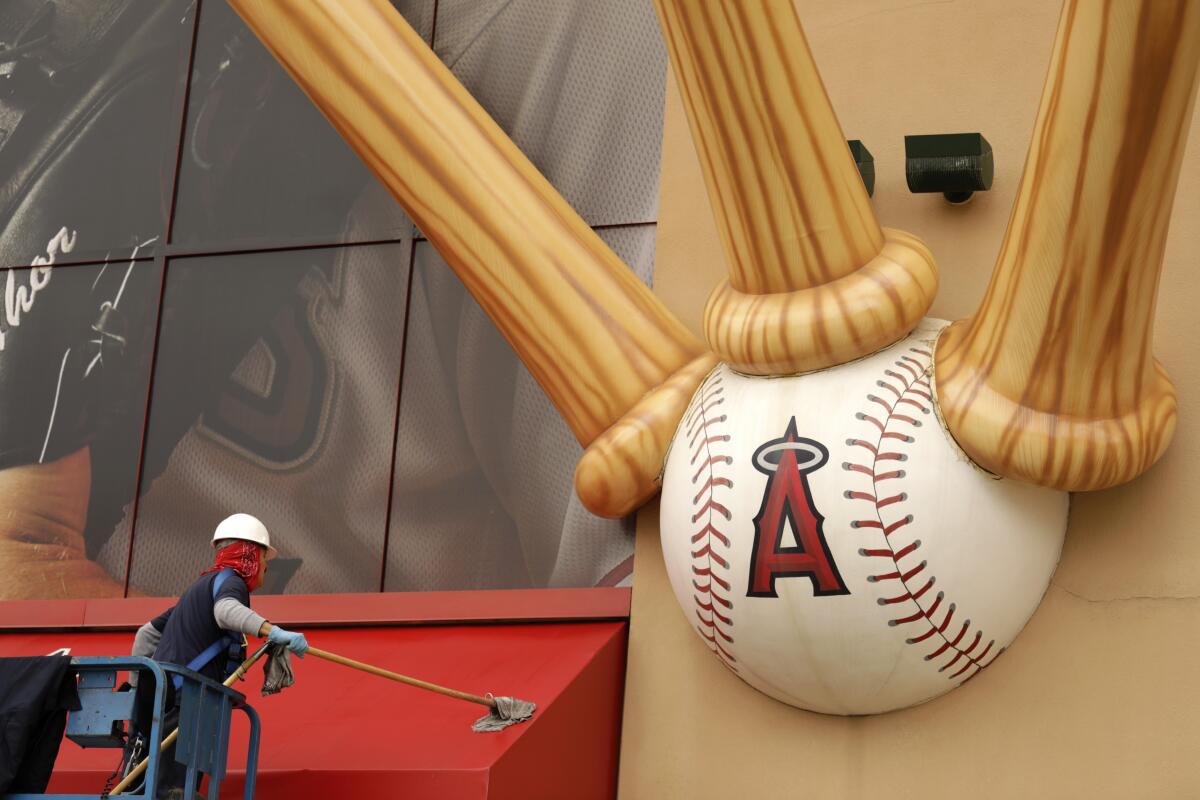
The Angel Stadium deal is dead.
The Anaheim City Council voted unanimously late Tuesday night to kill the sale of Angel Stadium and the surrounding property, in the process bracing for what city councilmen said could be a long and nasty legal battle with Angels owner Arte Moreno.
On the day after mayor Harry Sidhu resigned amid an FBI investigation into the so-called “cabal” that runs the city, Councilman Jose Moreno said the probe had raised the curtain on what he called “a pandemic of corruption” in Anaheim and called the stadium deal “the fruit of a poisoned tree.”
The council asked the city attorney to notify the Angels of the decision Wednesday, the start of a process in which the city would ask the Orange County Superior Court to declare the deal invalid because of “concerns of conflict of interest and that the transaction was not at arm’s length,” as the attorney for Moreno’s management company had said in a letter that demanded the council approve the sale.
In the absence of a settlement with the Angels, Councilman Stephen Faessel said the termination “is going to be litigated for the next several years” and said he did not anticipate a window to reopen negotiations with the Angels before then.
The decision to terminate the deal does not leave the Angels homeless. Because the sale hasn’t been finalized, the stadium remains under the ownership of the city, and the Angels remain under a lease that binds the team to Angel Stadium through at least 2029. The team has the option to stay through 2038.
The wide-ranging investigation includes the sale of Angel Stadium and allegations of bribery involving Anaheim’s mayor.
Under the terms of the sale agreement, if Anaheim kills the deal, the city could refund the $50 million Arte Moreno already has put into escrow, plus up to $5 million in his “transaction costs” and potential legal fees. However, the city’s preliminary legal position is that the alleged fraud might relieve the city of that burden – and could trigger a court to order Arte Moreno’s company to pay the city’s legal costs.
Arte Moreno, who formed the management company to develop the Angel Stadium property, also could sue the city for breach of contract.
Yet Councilmen Jose Moreno and Avelino Valencia all but dared Arte Moreno to take that step. With an FBI agent saying Sidhu had provided confidential negotiating information to the Angels in the hope of securing a million-dollar campaign contribution from them, Jose Moreno said he would welcome the chance to depose Sidhu and Arte Moreno under oath in the event the Angels file suit.
The council meeting had the flavor of a revival, or a pep rally. The business interests that routinely speak up in favor of the deal were silent, in the week after the longtime leader of the Anaheim chamber of commerce was charged with fraud.
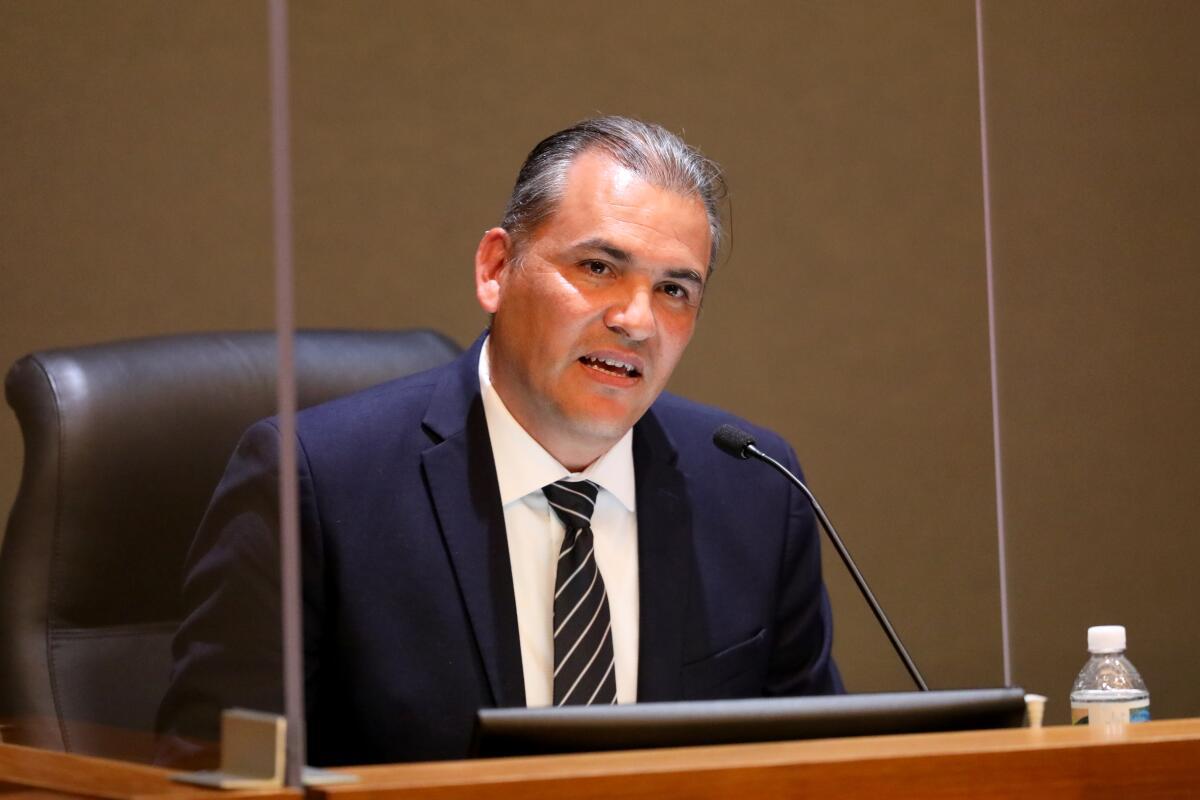
Of the 39 speakers that addressed the council during the public comment period, none spoke in favor of proceeding with the deal. One used part of his allotted speaking time to lead the audience in a chant of “Ditch the deal!”
Audience members waved placards calling for the deal to be canceled, the city to be audited, and certain council members to resign. Jose Moreno, the only councilman to consistently oppose the deal, got a standing ovation. At the start of the meeting, when Sidhu’s formal resignation as mayor was announced, the audience broke into raucous applause.
The city had agreed to a $320-million sale of the 150-acre site, which would have blossomed from an aging stadium surrounded by a sea of parking lots into a modern ballpark anchored amid a residential and retail village, where fans could come early to dine and avoid traffic or live within walking distance of baseball games and other entertainment options. The city agreed to accept $150 million in cash and use the rest to credit Arte Moreno and his company for including parkland and affordable housing within the project.
In a morning appearance on KPCC, Jose Moreno said starting over might well result in a project that looks pretty much like the one he wants the city to cancel.
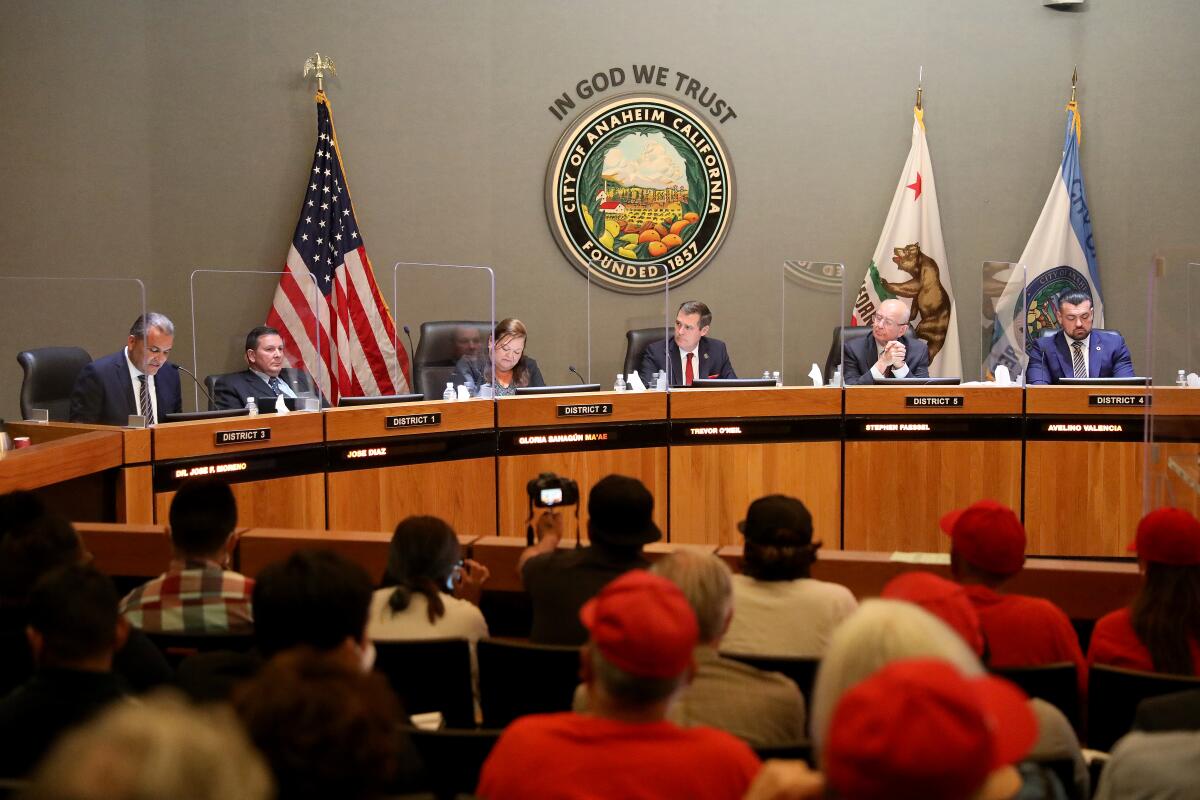
“In terms of the vision of the development, I don’t think you get much disagreement,” Jose Moreno said.
However, in the wake of an FBI affidavit made public last week that alleged Sidhu provided confidential information to the Angels about the city’s appraisal of the property, several speakers said the first order of business should be a new appraisal. Sidhu’s attorney has denied that allegation, and the alleged purpose of the information sharing: to secure a million-dollar campaign contribution from the Angels.
Paul Kott, an Anaheim real estate broker, said land values in the area have risen as high as $7 million per acre; the city’s cash price in the Angels deal was about $1 million per acre.
Ashleigh Aitken, an Anaheim mayoral candidate, said a new deal should be negotiated with community involvement, rather than the city and the team negotiating a deal before presenting it to the public.
“Our voices should be heard,” Aitken said.

The sale would accomplish several objectives the city had identified as important: get the city out of the business of running a stadium; get the Angels to commit as the anchor of a sports-themed development; and get the Angels’ owner to pay for a new or renovated stadium along with the cost of the development.
In an economic impact study commissioned by Arte Moreno and reviewed by the city’s consultants, the development — more than 5,000 homes, accompanied by shops, restaurants, hotels and offices — would generate $650 million in tax revenue for Anaheim over 30 years. The project would create 18,000 jobs during the construction phase and another 28,000 once the developments were up and running, according to the study. The city did not commission its own study.
The Angels’ current lease grants the team control over development on the property. The city could put the land up for bid, but city officials have said the maximum value could only be reached if the stadium was demolished and the Angels were gone. With the Angels’ lease in place, city officials consider it unlikely that a bidder would pay top dollar now for property it might not be able to develop for 16 years.
Arte Moreno would not be required to negotiate a new sale or lease deal with the city.
The Anaheim city council will meet Tuesday to try to figure out next steps in the deal to sell Angel Stadium land to Angels owner Arte Moreno.
The Angels have asked the council to approve the sale no later than June 14. An attorney for Moreno and his management company wrote that the company “has met all its obligations and has every expectation that this transaction should move forward.”
Said Valencia, noting the timing and tone of the letter as the city tried to dig out from the mayoral scandal: “I did not appreciate the letter.”
A spokeswoman for Arte Moreno and his management company did not immediately return a message seeking comment late Tuesday night.
More to Read
Go beyond the scoreboard
Get the latest on L.A.'s teams in the daily Sports Report newsletter.
You may occasionally receive promotional content from the Los Angeles Times.


